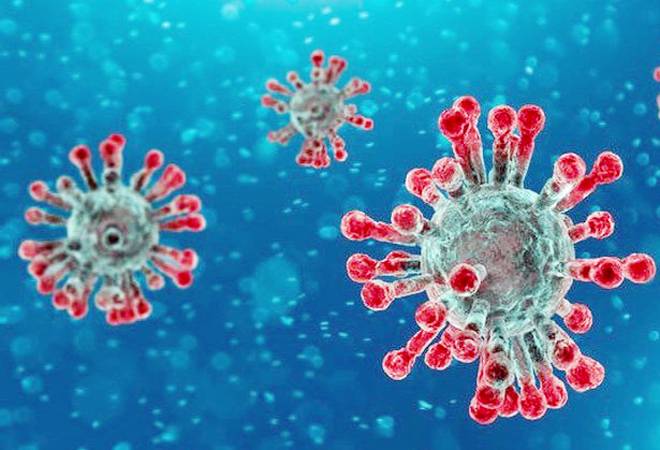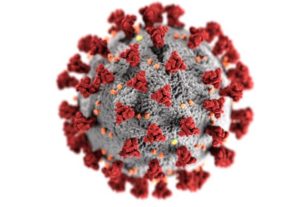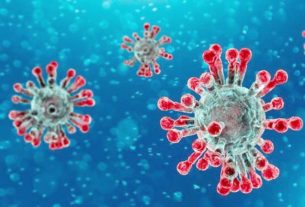From Our Bureau
16th and 17th June
Prime Minister Narendra Modi observed that timely decisions taken to combat the COVID-19 pandemic have been effective in containing its spread in the country.
“When we look back, people will remember that we have presented an example for cooperative federalism to the world,” he said.
The Prime Minister interacted with Chief Ministers via video conferencing on Tuesday to discuss the situation emerging post Unlock 1.0 and plan ahead for tackling the COVID-19 pandemic. This was the sixth such interaction of the PM with the Chief Ministers, the earlier ones had been held on 20th March, 2nd April, 11th April, 27th April, and 11th May.
“We have tried to save each and every life,” the Prime Minister asserted. He underlined that all modes of transport are now open, lakhs of migrant labourers have travelled back to their villages, thousands of Indians have returned from abroad. Even though India has a huge population, Corona virus has not assumed as life threatening a form as in the rest of the world.
He said that health experts world over are praising the discipline shown by Indians, adding that the recovery rate in the country is now over 50 percent. He also noted that India is amongst the nations with the least deaths due to Corona virus. “A big lesson is that if we remain disciplined and follow all rules, Corona virus will cause least damage,” he added.
He emphasized on the importance of usage of mask/ face cover, without which no one should venture out. This is not just important for the person concerned but also for his family and community. He also talked about following the mantra of ‘do gaz doori,’ washing hands with soap and using sanitizer. He forewarned that any laxity in discipline will weaken our fight against the virus.
Chief Ministers speak
Tuesday’s interaction was the first part of the two-day interaction and witnessed participation of States and Union Territories, including Punjab, Assam, Kerala, Uttarakhand, Jharkhand, Chhattisgarh, Tripura, Himachal Pradesh, Chandigarh, Goa, Manipur, Nagaland, Ladakh, Puducherry, Arunachal Pradesh, Meghalaya, Mizoram, Andaman & Nicobar Islands, Dadra Nagar Haveli & Daman Diu, Sikkim and Lakshadweep.
The Chief Ministers thanked the Prime Minister for his leadership during such a challenging time and uniting the country for the collective fight against the virus. They provided feedback about existing health infrastructure in their states and efforts for augmentation to tackle the impact of the virus. They mentioned about the awareness campaigns being run by them, help being provided to workers who have returned home, usage of Aarogya Setu app, and kick-starting of economic activities in the states.
Focus on both life and livelihood
Prime Minister thanked the Chief Ministers for their views. He underscored the importance of being focussed on both life and livelihood. He said that on the one hand, health infrastructure will need to be boosted with emphasis on testing and tracing, economic activity will also need to be increased. The decisions need to be taken keeping in view both current needs and future requirements.
He asked the leaders to continuously keep driving in the fact that danger of the virus is not over yet, and the need to remain vigilant while opening up the economy.
Home Minister Amit Shah said that while we have so far fought a successful battle against the pandemic, the road ahead is long and suggestions given by the Prime Minister regarding use of mask/face cover, maintaining do gaz doori etc should be followed by all.
Earlier review of preparations
Prime Minister had held a detailed meeting with senior ministers and officials on 13th June to review India’s response to COVID-19 pandemic. The meeting had reviewed the national level status and preparation in the context of the pandemic.
It was observed that out of the total cases, two-thirds are in 5 States with an overwhelming proportion of cases in big cities. In view of the challenges being faced, particularly by the large cities, it was decided to augment testing as well as the number of beds and services to effectively handle the peak surge of daily cases.
The Prime Minister had taken cognizance of the recommendations of the Empowered Group on city- and district-wise requirements of hospital beds/isolation beds which will be required and instructed Health Ministry officials to undertake emergency planning in consultation with the States/UTs. He had also advised the Ministry to ensure suitable preparations in view of the start of the Monsoon season.
The PM on Wednesday held the second part of two-day interaction with Chief Ministers via video conferencing to discuss the situation post Unlock 1.0 and plan for tackling the COVID-19 pandemic.
He observed that the spread of the virus is greater in certain big states and cities. High density of population, difficulty in maintaining physical distancing and daily movement of people in huge numbers has made the situation challenging, yet through patience of citizens, readiness of administration and dedication of corona warriors, the spread has been kept under control.
Through timely tracing, treatment and reporting, the number of those recovering is rising, he said. He added that the discipline shown by people during Lockdown has prevented the exponential growth of the virus.
Ramping up of health infrastructure
The PM talked about the presence of better health infrastructure and trained manpower to meet the challenge. He highlighted the increase in domestic manufacturing capabilities of PPEs, masks, availability of diagnostic kits in adequate quantity, supply of ventilators made in India using PM CARES fund, availability of testing labs, lakhs of COVID special beds, thousands of isolation and quarantine centres, and adequate human resource through training. He underlined the need to give constant emphasis on health infrastructure, information systems, emotional support and public participation.
He stressed the importance of testing to quickly trace, track and isolate those affected. The existing testing capacity needs to be utilized fully, and along with constant efforts for expansion. He mentioned the benefits of telemedicine and the need to create a big team of senior doctors who can guide and inform the sick through this means. He also talked about spreading timely and correct information through the helplines and the need to build a team of young volunteers to run the helplines effectively.
Battling fear and stigma
The PM observed that the States where Aarogya Setu app has been downloaded in large numbers are witnessing positive results. Efforts should be made to increase the reach of the app, he said. He talked about being vigilant against health related problems that come with the Monsoon.
He also underlined the emotional aspect of the battle against the virus, including battling fear of being afflicted and the stigma attached by making people aware of the high number of those who have defeated the virus and recovered. Our priority must remain to help and support our corona warriors, doctors and health care workers. He added that Jan Bhaagidaari is essential in this fight and said that people must be constantly reminded to use masks, face cover, and maintain physical distancing.
Chief Ministers speak
Wednesday’s interaction was the second part of the two-day interaction and witnessed participation of States and UTs including Maharashtra, Tamil Nadu, Delhi, Gujarat, Rajasthan, Uttar Pradesh, Madhya Pradesh, West Bengal, Karnataka, Bihar, Andhra Pradesh, Haryana, Jammu & Kashmir, Telangana and Odisha.
The Chief Ministers thanked the Prime Minister for his leadership and briefed him about the ground situation in the states and their preparedness to tackle the impact of the virus. They talked about health infrastructure available to meet the challenge and steps taken to strengthen it further, support provided to frontline workers, monitoring in containment zones, campaigns to encourage usage of masks and other safety precautions, increase in testing, and providing gainful employment opportunities to the migrants who have returned.
Unlock 2.0
The Prime Minister thanked the Chief Ministers for their views. He mentioned that the collective commitment to fight against the virus will lead us to victory, while also talking about the need to speed up economic activities with due precautions in place. He talked about the need to fight rumours of lockdown, mentioning that the country is now in phase of Unlocking. “We need to now think about phase 2 of Unlock and how to minimize all possibilities of harm to our people,” he observed.
He noted that with reduction in restrictions, indicators of economic performance are showing signs of revival. Inflation has also been kept under control. He asked the States to take steps to boost infrastructure and construction related work. He listed steps taken under Atmanirbhar Bharat to provide a fillip to MSMEs, farming and agriculture marketing. He also underscored the need to remain alert to effectively tackle the challenges faced by the migrant labourers in the coming months.
Home Minister Amit Shah said that we have so far been quite successful in our fight against the virus under the leadership of the Prime Minister, but the battle is far from over. He underlined that “as we begin to unlock, we must stay vigilant.” He requested all Chief Ministers to encourage download of Aarogya Setu to act as a self-shield for protection. The OSD, Health Ministry, mentioned about the continuous decline in growth rate of cases during the phases of Lockdown and subsequently also in Unlock 1.0. He briefed about the positive outcomes of Lockdown including a large number of cases averted and lives saved, spread of awareness, and ramping up of health infrastructure. He also informed that the number of cases and deaths per lakh of population in India are amongst the lowest in the world. (eom)



